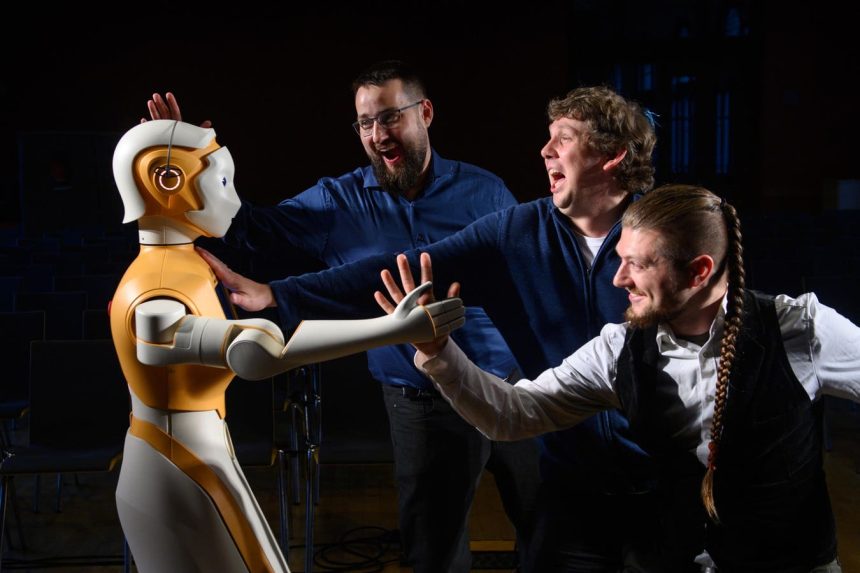The music industry stands at a precipice, facing a technological revolution driven by artificial intelligence (AI). This transformative technology presents both immense opportunities and grave threats. AI’s capacity to generate music indistinguishable from human compositions, fueled by vast unlicensed datasets, has created a copyright crisis. Existing legal frameworks struggle to address ownership disputes when AI models compose music using fragments of thousands of existing works. This legal ambiguity, coupled with the music industry’s inherent inertia, creates a volatile landscape where AI could either amplify artistic expression or decimate the livelihoods of human creators. The core question is no longer whether AI will disrupt the industry, but the extent of the damage and the possibility of mitigating its negative impacts.
The rise of AI as a “copyright thief” poses a fundamental challenge. Generative AI models, trained on massive datasets scraped from the internet and music platforms, often infringe on the copyrights of countless artists. Accountability remains elusive as courts grapple with the legal implications of AI-generated works. This legal vacuum allows platforms like Spotify to integrate AI-generated music, reducing costs and shrinking royalty streams for human artists. The economic allure of “free” AI-generated music threatens the very foundation of the music ecosystem. The UK’s ongoing debate on AI copyright reform, with the possibility of granting sweeping permissions for AI models to scrape creative works without licensing, sets a dangerous precedent. If adopted, this approach could inspire similar measures globally, further jeopardizing artists’ rights. The urgency for artists to advocate for stricter frameworks, such as opt-in licensing models, cannot be overstated.
Streaming platforms are quietly embracing AI, further complicating the landscape. Spotify and YouTube are already utilizing AI to curate playlists and suggest music. By 2025, AI-generated content, often disguised as human-created, is expected to flood these platforms, eroding listener trust and devaluing genuine artistry. The potential for platforms to save billions by replacing licensed music with AI-generated alternatives is a powerful incentive. Without mandatory transparency regarding the origin of music, audiences risk unknowingly consuming entirely machine-made content, blurring the lines between authentic artistry and corporate efficiency. Enforcing transparency, requiring platforms to disclose AI-generated content, is crucial to protect both artists and listeners.
The emergence of frontier AI models, requiring less computational power and smaller datasets, democratizes access to music generation tools. By late 2024, even small startups and individuals could release music rivaling professional studios. This accessibility, while potentially empowering, also threatens to flood platforms with AI-generated music, further marginalizing human creators. The sheer volume of machine-made tracks could create an environment where independent artists struggle to compete, forced to navigate a landscape dominated by AI. This scenario risks exacerbating existing inequalities within the music industry and diminishing the visibility of authentic artistic expression.
AI-powered agents represent another looming disruption. These software-driven systems, capable of autonomously writing, producing, and marketing music, could theoretically operate without royalties, creative freedom demands, or time off. While the widespread adoption of AI-generated performers remains speculative, their potential to compete with human artists raises existential questions about the nature of creativity and the role of human emotion in art. Whether audiences will embrace algorithmic artists remains to be seen, but evidence suggests that musical resonance may outweigh concerns about authenticity for many listeners. The ability of AI to dissect and replicate human emotions in music further complicates this dynamic, blurring the lines between genuine human expression and sophisticated mimicry.
The music industry must act decisively within the next year to navigate these challenges. Global copyright reform is paramount, requiring international agreements that mandate explicit consent for AI training datasets and transparency for AI-generated works. Licensing agreements need to be strengthened, incorporating upfront fees for dataset usage, royalties for derivative works, and robust auditing mechanisms. Educating fans about the implications of unchecked AI use is also crucial. Building coalitions between artists, rights organizations, and policymakers is essential to demand fair treatment and establish a sustainable framework for AI in music. A focus on robust licensing frameworks, enforcement mechanisms, and fan education is critical to protecting artistic works from unauthorized use and ensuring fair compensation. This proactive approach is not just about preserving artists’ livelihoods but also about safeguarding the future of human creativity in music.
The escalating number of AI-related patent filings, particularly in the music and video sectors, underscores the rapid pace of technological advancement. This global race for AI dominance further emphasizes the urgency for policy decisions that prioritize creator rights. The potential for deregulation in certain regions, prioritizing innovation over copyright protection, could exacerbate the challenges faced by artists. The stakes are high, and the coming months will determine whether the music industry can harness the potential of AI while preserving the essence of human creativity. The fight for the soul of music has begun, and the outcome will depend on the collective action of artists, fans, and policymakers.



